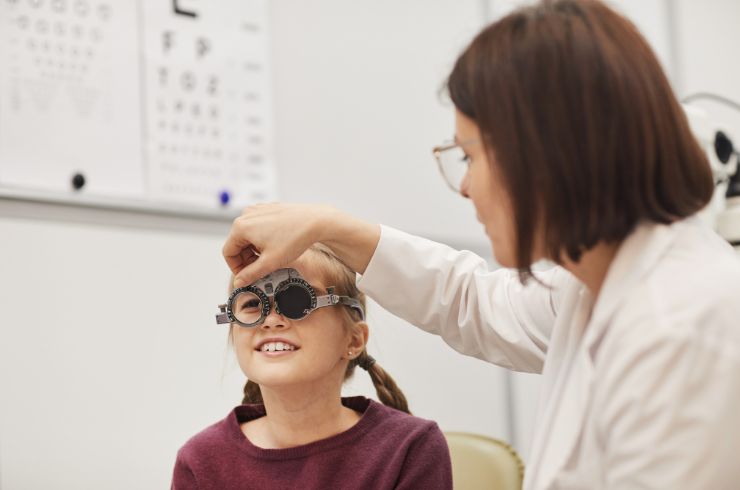
Children’s eye care demands a specialized approach to ensure proper visual development and address unique challenges that arise in younger patients. Our pediatric ophthalmologists are equipped with advanced techniques and tools, including binocular indirect ophthalmoscopy and pediatric visual evoked potentials (VEP), to provide thorough evaluations and treatments. From managing amblyopia to performing pediatric cataract surgeries, we are dedicated to early intervention to support lifelong visual health.
Description and Significance
Our clinic offers comprehensive pediatric eye care, focusing on early detection and treatment of eye conditions in children. Techniques such as binocular indirect ophthalmoscopy allow us to examine the retina and optic nerve in detail, while pediatric VEP assesses visual pathways to diagnose and monitor conditions effectively. Early intervention is vital for optimizing visual development, as untreated conditions like amblyopia can lead to long-term vision issues. Pediatric cataract surgery addresses lens opacities that may be present from birth or develop early in life, ensuring that children achieve the best possible visual outcomes.
Highlights and Unique Hospital Features
Our team excels in treating young patients with a compassionate approach tailored to their needs. We provide child-friendly examination rooms designed to make visits comfortable and engaging for children. Our expertise extends to managing complex conditions such as strabismus and amblyopia, with a focus on fostering balanced binocular vision. Additionally, we collaborate closely with pediatricians and other specialists to deliver comprehensive care that addresses all aspects of a child’s health, ensuring a holistic approach to their well-being.
Pediatric ophthalmology is a specialized field of medicine focused on diagnosing and treating eye conditions in children. It is crucial for early detection and management of eye disorders to ensure proper visual development.
Children should have their first comprehensive eye exam between the ages of 6 months and 1 year. The exam may involve evaluating vision, eye alignment, and overall eye health.
Common conditions include refractive errors amblyopia (lazy eye), strabismus (eye misalignment), and blocked tear ducts. Treatment options may include glasses, eye patches, vision therapy, or surgical intervention.
Signs may include squinting, rubbing the eyes excessively, holding objects very close to the face, having difficulty focusing, or complaining of headaches or eye discomfort. Any noticeable changes in the appearance or behavior of the eyes should be addressed.
Amblyopia occurs when one eye has reduced vision due to poor visual development. Treatment may involve patching the stronger eye to encourage the weaker eye to work harder, along with corrective measures like glasses.
Strabismus is diagnosed through a comprehensive eye exam. Treatment may involve glasses, vision therapy, or in some cases, surgery to correct the alignment of the eyes.
Yes, reaching developmental milestones related to vision, such as tracking objects, making eye contact, and focusing, are important indicators of visual health in infants and young children.
Excessive screen time can lead to digital eye strain and may contribute to nearsightedness in some cases. Encouraging breaks from screens and outdoor play can help support overall eye health.